Get to Know the Covert Mortality Nodavirus which Can Attack Vannamei Shrimp
The CMNV virus in shrimp was first discovered in China in 2009 with a mortality rate of up to 80%, causing huge economic losses for the farmers there.
However, it is also possible that this vannamei shrimp disease will spread to Indonesia if it is not prevented and handled properly. Therefore, in this article, let’s learn more about the Covert Mortality Nodavirus (CMNV)!
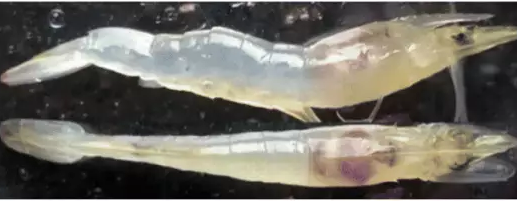
Life Stadia of Shrimp that are Vulnerable to CMNV
In white shrimp, mortality due to Covert Mortality Nodavirus (CMNV) was found in the first month after stocking up to 60-80 days after stocking. However, shrimp from various stages are also potentially infected with this virus.
Therefore, farmers need to detect early on the presence of the virus that causes Viral Covert Mortality Disease.
Vertical transmission of this disease can also occur. In previous studies, it was known that wild shrimp E. Carinicauda was strongly suspected of being an intermediary for CMNV to spread to ponds.
Meanwhile, a study by Liu (2018) showed that Covert Mortality Nodavirus (CMNV) could be detected in oogonia, oocytes, spermatocytes, fertilized eggs, and nauplii.
Symptoms of CMNV Affected Shrimp
Shrimp waning due to Covert Mortality Nodavirus (CMNV) usually stays at the bottom of ponds rather than swimming on the surface. Over time, these shrimp will die. Therefore, CMNV disease is also referred to as “bottom death”.
While clinically, several symptoms are shown, including necrosis and atrophy of the hepatopancreas, empty stomach and intestines, softening of the outer shell of the shrimp, slowing growth, white muscles, and experiencing necrosis.
CMNV Diagnostic Methods
Diagnosing shrimp infected with Covert Mortality Nodavirus (CMNV) can be done using various methods, including Reverse Transcription Loop-mediated Isothermal Amplification (RT-LAMP), Nested Reverse Transcription PCR, gene sequencing, histopathology, RNA in-situ hybridization (ISH). Meanwhile, virus particles can be observed with Transmission Electron Microscopy (TEM).
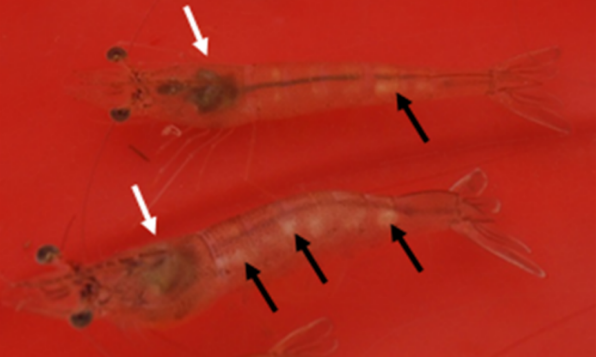
How to Prevent CMNV in Vannamei Shrimp
As previously explained, the carrier part of the Covert Mortality Nodavirus (CMNV) comes from wild shrimp and other aquatic animals. Therefore, you must always be vigilant and monitor the possibility of this transmission.
In addition, considering that Covert Mortality Nodavirus (CMNV) can be detected early, make sure you cultivate shrimp fry that is healthy and free from various types of diseases.
Cre: DELOS Aqua
Ngày đăng : 02/02/2024
1526 View
Other Articles
Indian shrimp pivot to the EU, increasing competitive pressure on Vietnam
Indoor shrimp farming in Europe: Investment challenges and the race to find a viable model
Shrimp production surged in the first month of the year, with exports benefiting from strong demand during the Lunar New Year holiday
Quang Ninh Accelerates Digital Transformation in Shrimp Farming, Rising to Lead Northern Vietnam
Lucky money is not just about cash — it’s Aqua Mina’s wish for a worry-free farming season for our valued customers
Việt Nam's top 10 seafood exporters command nearly one-fifth of industry revenue
Ca Mau Maintains Its Shrimp Brand in International Competition
VIETSHRIMP ASIA 2026 & AQUACULTURE VIETNAM 2026 – A TURNING POINT FOR THE MODERN SHRIMP FARMING INDUSTRY
Ecuador's shrimp industry educational program SustainED kicked off its 2026
An Giang will start raising brackish water shrimp as early as the beginning of 2026
Aqua Mina conducts the on-site installation of two aquaculture air blowers | Ceramic Ball Bearing – 15 kW – 25 kPa for a customer in Quang Ninh
Towards Building Brand Value for the Shrimp Industry









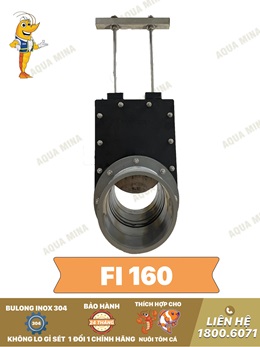



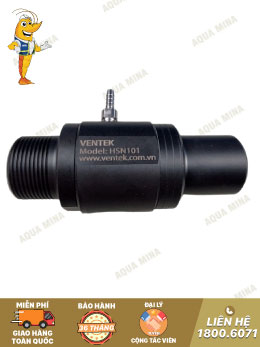

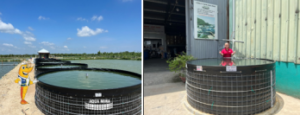

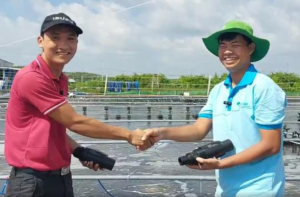
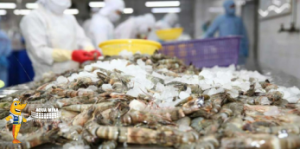
.jpg)